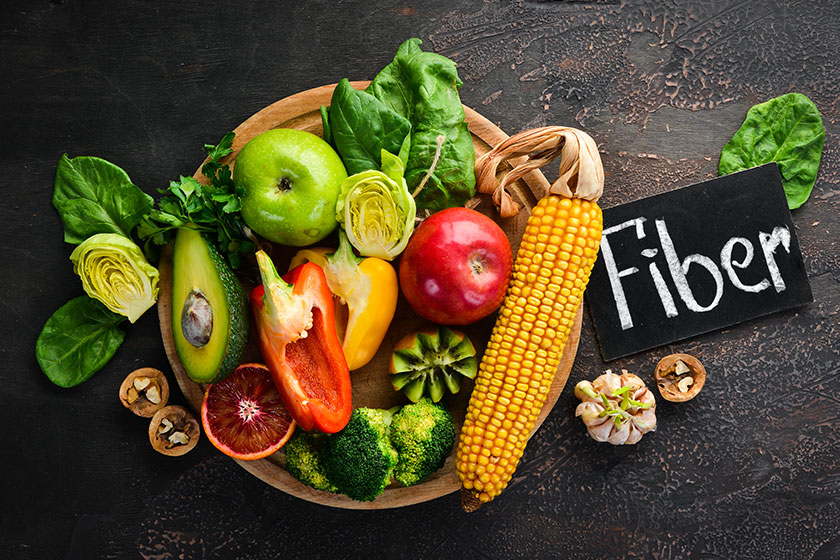Constipation can be a common issue for elderly individuals, but making simple dietary changes can often provide relief. In this article, we have compiled a list of the best foods for constipation in the elderly. Incorporating these items into your loved one’s diet can help alleviate discomfort and support regular bowel movements.
Prunes
Prunes are renowned for their natural laxative properties, making them an excellent choice for relieving constipation in the elderly. They’re rich in fiber, sorbitol, and natural sugars, all of which help soften stools and promote bowel movements.
Whether eaten dried or as prune juice, incorporating prunes into your loved one’s daily routine can provide effective relief from constipation.
Apples
Apples are another fiber-rich fruit that can help alleviate constipation. The insoluble fiber found in apple skins adds bulk to stool, while the soluble fiber in the flesh helps regulate bowel movements. Enjoy apples whole or sliced with the skin on to maximize their constipation-relieving benefits.
Flaxseeds
Flaxseeds are a powerhouse of nutrients and fiber, making them an excellent addition to your loved one’s diet for constipation relief.
These tiny seeds are rich in both soluble and insoluble fiber, which helps soften stool and promote regular bowel movements. You can sprinkle ground flaxseeds on yogurt, oatmeal, or salads, or incorporate them into baked goods for added fiber.
Leafy Greens
Leafy greens such as spinach, kale, and Swiss chard are packed with fiber and essential nutrients that support digestive health. The fiber in leafy greens adds bulk to stool, while their high water content helps prevent dehydration, a common contributor to constipation. Include a variety of leafy greens in your loved one’s meals to promote regularity.
Beans and Legumes
Beans and legumes are excellent sources of fiber and protein, making them a valuable addition to your loved one’s diet for constipation relief.
Options like lentils, chickpeas, and black beans are particularly high in soluble fiber, which helps soften stool and promote bowel movements. Incorporate beans and legumes into soups, salads, and main dishes for a delicious and nutritious way to support digestive health.
Whole Grains
Whole grains such as oats, barley, quinoa, and brown rice are rich in fiber, vitamins, and minerals that support digestive health.
The fiber in whole grains adds bulk to stool, while their complex carbohydrates provide sustained energy and promote regular bowel movements. Swap refined grains for whole grains in your loved one’s diet to help prevent and relieve constipation.
Yogurt
Yogurt is not only delicious but also beneficial for digestive health, thanks to its probiotic content. Probiotics are beneficial bacteria that help maintain a healthy balance of gut flora, which is essential for proper digestion and regular bowel movements.
Choose plain, unsweetened yogurt with live and active cultures to maximize its constipation-relieving benefits for your loved one.
Berries
Berries such as strawberries, raspberries, blueberries, and blackberries are not only delicious but also packed with fiber and antioxidants that support digestive health.
The fiber content in berries helps add bulk to stool and promotes regular bowel movements. Whether enjoyed fresh, frozen, or blended into smoothies, berries are a tasty and nutritious way to relieve constipation in elderly loved ones.
Pears
Pears are another fruit rich in fiber and water content, making them an excellent choice for relieving constipation in the elderly. The combination of soluble and insoluble fiber in pears helps soften stool and promote bowel movements. Enjoy pears whole or sliced with the skin on to maximize their constipation-relieving benefits.
Nuts and Seeds
Nuts and seeds such as almonds, walnuts, chia seeds, and pumpkin seeds are nutrient-dense snacks that can help alleviate constipation in elderly individuals. These crunchy treats are rich in fiber, healthy fats, and essential nutrients that support digestive health. Sprinkle nuts and seeds on salads, yogurt, or oatmeal, or enjoy them as a satisfying snack between meals.
Broccoli
Broccoli is a cruciferous vegetable that’s rich in fiber, vitamins, and minerals that support digestive health. The fiber in broccoli adds bulk to stool, while its high water content helps prevent dehydration and promote regular bowel movements.
Steam, roast, or stir-fry broccoli as a delicious side dish or incorporate it into soups, salads, and casseroles for added fiber and nutrients.
Water
While not a food, adequate hydration is crucial for maintaining regular bowel movements and preventing constipation. Encourage your loved one to drink plenty of water throughout the day, aiming for at least eight glasses or more depending on their individual needs and activity level.
Staying hydrated helps soften stool and keep the digestive system functioning smoothly, supporting overall health and well-being.
Incorporating these best foods for constipation relief into your elderly loved one’s diet can help alleviate discomfort and promote digestive health.
Remember to encourage adequate hydration and physical activity alongside dietary changes for optimal results. If constipation persists despite dietary modifications, consult with a healthcare professional for further evaluation and management.






